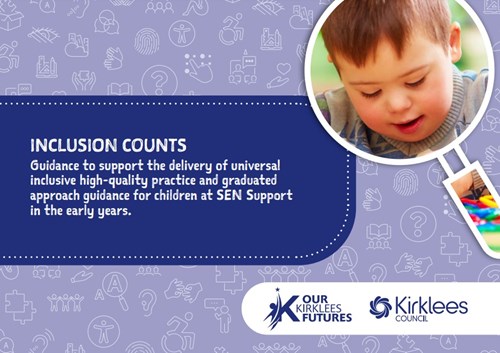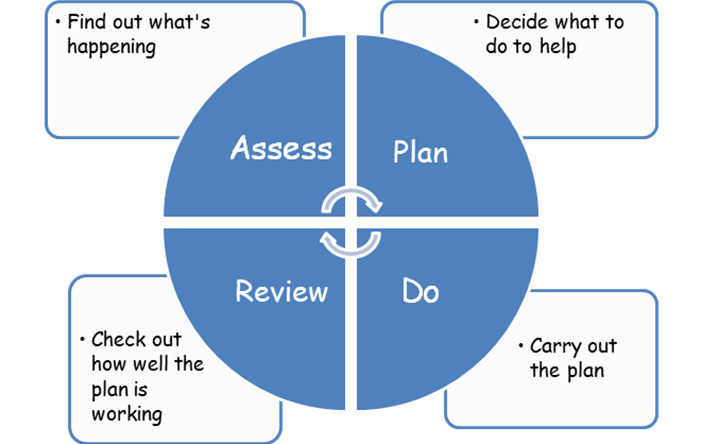If you are worried about your young child’s learning and or development and think they may have a special educational need and or disability you can contact the Kirklees Early Years Special Educational Needs Service & Disabilities (EYSEND).
The service offers advice and support to children, their families, and the education settings they may be attending.
Early Years SEND (EYSEND) is an early learning support service that works with children aged 0-5 who have special educational needs and or disabilities (SEND). It is a referral based service who offer support, advice, guidance and training for parents / carers and professionals across a wide range of settings and the family home.
The Early Years SEND team consists of 14 trained professionals who all have a wide range of experience supporting and teaching young children. All members of the team have specialist knowledge around working with children with additional needs. They work closely with health professionals, nursery and pre school settings and schools. Working in partnership with parents / carers is a primary principle of the service.
The EYSEND Team can help to:
- Gather information from yourselves to try and build a picture of your child’s needs and what can be done to help
- Offer ideas and individualised plans to support your child’s learning and development
- Support families to help their child’s learning and development at home
- Support practitioners in early learning settings (Nurseries, childminders, playgroups and schools) to provide appropriate teaching and learning opportunities for children with SEND
- Help families to access early learning settings that will meet their child’s needs
- Help ensure children’s needs are identified early so that appropriate teaching and learning opportunities can be provided
- Support families if their child’s 2-year check is highlighting gaps in their learning or development
- Liaise with other professionals who may be supporting your child
- Help families to understand the SEND processes and any additional support that they may be entitled to including SENDIF, SENDIF + and DAF
The EYSEN team has 4 strands of support:
- Home Portage
- Inclusion Support
- Portex Teacher support.
- Specialist intervention for complex communication and interaction


